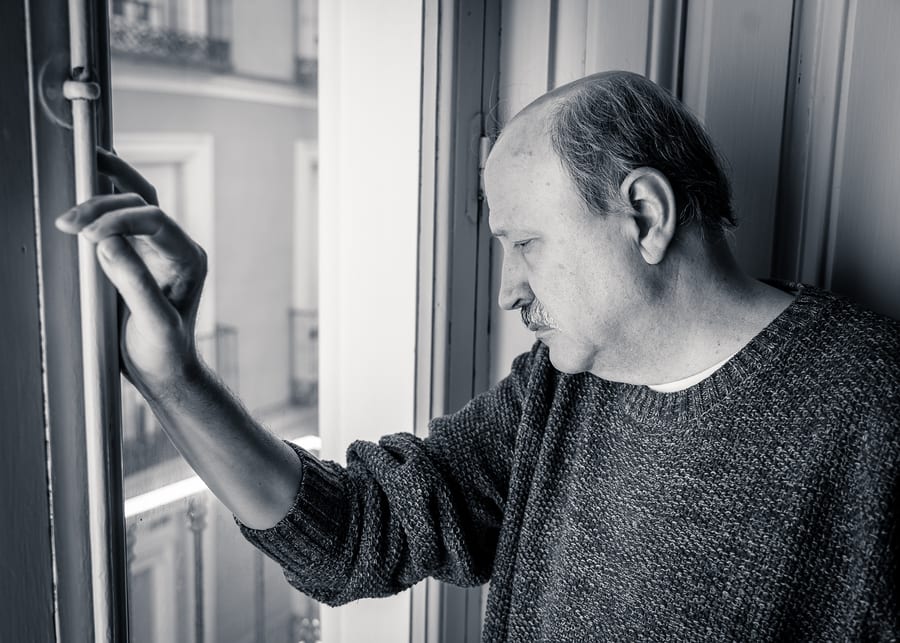When spending time with a loved one with Alzheimer’s disease, you may notice shifts in their behavior and personality during the late afternoon and evening. Doctors refer to this change as Sundown Syndrome. While doctors are unsure of why exactly Sundowning occurs, it seems to be triggered by the change in light outside as the day goes on, as well as an individual’s circadian rhythm. About 1 in 5 people with Alzheimer’s experience Sundown Syndrome; but it can also appear in some elderly people who are not suffering from dementia.
Symptoms
Sundown Syndrome has a number of symptoms that can be exhibited by sufferers of Alzheimer’s during the later parts of the day. Common Symptoms include: increased agitation & irritability, restlessness, wandering, mood swings, suspicion & paranoia, increased confusion & disorientation, and demanding behavior. They may also experience auditory or visual hallucinations.
Helping Your Loved One Combat Sundown Syndrome
There is not much that you can do in order to completely mitigate Sundown Syndrome, but there are some changes you can help them make in order to mitigate some of the effects of it. Sundown Syndrome can cause a lot of problems for your loved one’s sleep patterns, so working towards managing their symptoms can help them get a more restful night’s sleep.
Establish A Daily Routine
Daily routines can be very important to keeping your loved one getting proper sleep and reducing agitation. Setting regular schedules for getting up, going to bed, eating meals, and exercise can be helpful. Try to schedule doctor’s appointments and family visits earlier in the day; when they are more likely to be happier and calmer.
No Long Naps
Naps in the middle of the day can be a good thing, as long as they are on the shorter side. Long naps can affect the sleep cycle and make it harder for your loved one to fall asleep at night. Encourage your loved one to do some light activities instead of sleeping in the middle of the day; such as playing cards or board games, doing puzzles, or reading.
Comfortable Bedroom Environment
Being comfortable in bed is essential to proper sleep, and so is having a nighttime routine. Playing your loved one calming music or reading to them can be helpful. But when it is time to sleep, the room should be peaceful and quiet. Outside noises can be overstimulating for someone suffering from Sundown Syndrome, so a quiet place to sleep is important.
Shadows can cause surroundings to seem dangerous or unfamiliar to an addled mind. Be sure to leave on a hall light, or set up a night light. It is important that the room is lit enough that they can navigate to the bathroom if needed.
Make Time for Exercise
A good way to ensure that your loved one sleeps well is ensuring that they are tired at the end of the day. Making some time in their routine for some exercise can be a good idea, if they have the capacity for it. Even a little bit of physical activity, such as walking, yoga, or physical therapy can be effective. Exercise can help reduce stress, combat feelings of depression, and create chances for some socialization with others. Talk with their physician before creating an exercise routine for them; especially if they have difficulty with balance and mobility.
Diet
Dietary concerns should be discussed with your loved one’s doctor first. Generally, limiting caffeine and sugars in your loved one’s diet. Sugars and caffeine can disrupt the sleep cycle and make it difficult to find rest. Alcohol should be avoided completely. Fluids should be limited in the later hours to help prevent late night bathroom trips or incontinence.
Help When You Aren’t Around
In many cases, caring for a victim of Alzheimer’s can be a full-time job, and one that can’t be avoided. Relocating a loved one with dementia to a nursing home facility can be very disorienting and confusing to your loved one. A home healthcare aide or nurse can help your loved one stick to their routine, and can help them mitigate the symptoms of Sundown Syndrome. Home healthcare professionals help your loved one maintain their independence and improve their quality of life.
Safe Harbor Healthcare Services does not provide medical or healthcare advice via articles. This material has been prepared for informational purposes only, and is not intended to provide, and should not be relied on for medical advice.
Safe Harbor Healthcare Services has been providing excellent home care on Staten Island since 1967. Our services help the elderly and disabled live safely and independently; while giving their families the peace of mind they need. For more information contact Safe Harbor at (718)-979-6900.

